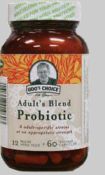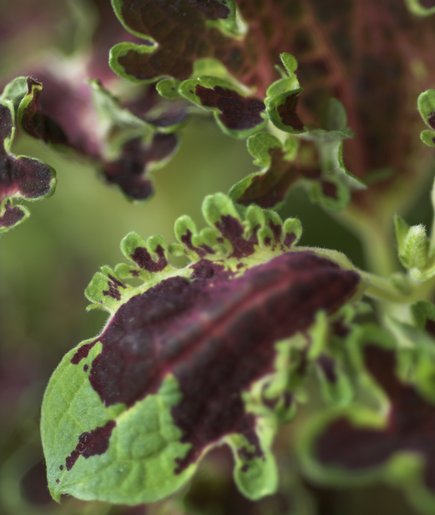
In his Guest Editor letter to our readers,
Canadian nutritionist Udo Erasmus talks about life,
and how to know if we are living up to its potential.
The LIFECO ARTICLES Index
Enzymes | Probiotics | Good & Bad Fats | Foundation vs. Supplement Oils | Environment & Health | Life

The father of organic, unrefined oils, Udo Erasmus,
explains how to fix digestive problems,
how to wake up with sweet-smelling breath,
and how the state of the environment is reflected in our health.
Why should we take enzymes with our foods?
Going back billions of years, every creature on this planet has lived in line with nature.
Their foods are fresh, whole, organic, seasonal, locally grown, sun-ripened, and raw. Only humans process, cook, and thus damage their food. During processing, enzymes naturally present in raw foods are destroyed. 
By taking enzymes, we replace those enzymes that are destroyed by food processing. There is evidence that enzymes can be absorbed into the body and help the function of the immune system. Pancreatic enzymes not needed for digestion can be picked up by the immune system and used in defensive work throughout the body.
I have personal experience with enzymes. At the age of 50, my digestion went haywire. I had major gas, pain, and bloating. I began to take enzymes, and soon afterwards my digestion problems were fixed. Now, at 66, I have better digestion than I had at age 50, even when I stopped taking enzymes. How can I explain that? My theory is that my digestive system has had time to rest and rebuild itself now that I don’t keep overloading it because I take enzymes with my food.
Enzymes | Probiotics | Good & Bad Fats | Foundation vs. Supplement Oils | Environment & Health | Life
What are probiotics and how are they best used?

Probiotics are friendly bacteria that belong in our digestive tract, from stem to stern. They protect us from unfriendly bacteria that would like to live in our gut (it’s warm, and there’s lots of food), but would make us sick if they did.
They stimulate cells that line the insides of our digestive tract to make a protective covering called mucin, which prevents acids, enzymes, bacteria and abrasion from damaging our digestive tract. They also help prevent traveler’s diarrhea. Like enzymes, probiotics are destroyed when foods are processed or cooked. Since they are natural to our gut, they should be replaced. 
Probiotics may also be helpful against damage to the esophagus and stomach, but only if they are present in our mouth. Here they also protect against infections of the gums, teeth, sinuses, tonsils, inner ear canal, and tear ducts. Probiotics survive stomach acid and bile best if taken after meals.
1) Open a capsule and dump the contents onto the tongue
2) Brush your teeth with the powder (after usual oral hygiene)
3) Swallow them after brushing, and leave the rest in your mouth (don’t rinse or spit out).
A tangible benefit of this method of brushing your teeth is the disappearance of bad breath. If we brush our teeth with probiotics before going to bed, leaving the remaining ones after we swallow in our mouths, they will fight bad-breath bacteria all night. We will wake up with a fresher smelling mouth in the morning! Why is this? The rot bacteria causing bad-breath lives and reproduces in our oral cavity.
When we sleep, we don’t swallow them, so they multiply and accumulate. Probiotics are also alive and all night long they inhibit the growth of rot bacteria, out-reproduce them, and steal their food. For proof, just ask your partner in the morning how your breath is.
Enzymes | Probiotics | Good & Bad Fats | Foundation vs. Supplement Oils | Environment & Health | Life
Can you sort out the confusion that exists about good and bad fats?

Fats are the most neglected, confusing, and misunderstood aspects of nutrition.
Good fats, which we get too little of, are essential for our life and health. The best are essential fatty acids - omega 3 and omega 6. The body cannot make them, must have them for life and health, and must get them from outside. These fats should come from organic seeds, protected from light, heat and oxygen during production and storage, without the use of harsh chemicals. Monounsaturated (omega 9) and saturated fats are also good fats but are not essential.
Bad fats are usually good fats that have been damaged by industry processing and food preparation at home (frying, deep frying, sautéing, barbecuing, baking, etc).
These fats contain changed molecules with fancy names only a chemist can understand. In the processing that produces the usual colorless, odorless, tasteless omega 6 ‘cooking oils’, up to 1% of the oil molecules have been damaged. Fish oils often contain 3-5% damaged molecules, and concentrated fish oils may contain even more. 
Bad fats are bad for one simple reason. Damaged, processed molecules did not exist in raw foods naturally, so life did not make a DNA program to deal with them easily.
When they get into the body, they tend to accumulate in the body (and up the food chain) and cause systemic inflammation that is slow to resolve. Life made our DNA only to adapt us to live in line with nature, but not to live adapted to industrial molecules like pesticides, plastics, synthetic drugs, industrial chemicals, and food molecules damaged by processing or food preparation.
When it comes to fats, we need only omega 3 and omega 6, both made without damage, in the right amount (15ml/25kg of body weight/day), and in the right ratio (2:1). Everything else is optional.
Enzymes | Probiotics | Good & Bad Fats | Foundation vs. Supplement Oils | Environment & Health | Life
What’s the difference between foundational and supplemental oils?
 Seed and nut oils are foundational (or food) oils. Along with proteins and carbohydrates, these oils are major nutrients. Optimum intake of foundational oils, which should contain the right ratio of omega 3 to omega 6 (2:1), is about 15ml/25kg/day, or 14g/25kg/day. They should be mixed in food and spread out over the course of the day. These oils are foundational because we need them in relatively large quantities. Seed and nut oils are foundational (or food) oils. Along with proteins and carbohydrates, these oils are major nutrients. Optimum intake of foundational oils, which should contain the right ratio of omega 3 to omega 6 (2:1), is about 15ml/25kg/day, or 14g/25kg/day. They should be mixed in food and spread out over the course of the day. These oils are foundational because we need them in relatively large quantities.
Supplemental oils come from fish, although fish don’t make them.
Fish get them from their foods. Algae at the bottom of the food chain make supplemental oils benefiting the entire food chain. These supplemental oils originate from plants. Because of the damage done to fish oils by processing, I prefer the plant source of supplemental oils. They can be grown in tanks, in a controlled environment free of PCBs and dioxins, and can be harvested without processing damage. Unlike fish, which are being rapidly depleted from the oceans, algal supplemental oils are sustainable.
Supplemental oils are used in small quantities. The usual recommendation is only 3 to 5 grams per day. More is not better.
We all need foundational fats, and some of us can benefit from taking supplemental fats in addition to foundational ones, but no one can be healthy only using supplemental fats.
Enzymes | Probiotics | Good & Bad Fats | Foundation vs. Supplement Oils | Environment & Health | Life
How does our environment affect our health?
When we pollute our environment, our environment pollutes us. We eat our environment - it is our food. Our environment is not the problem. We are the polluters. Without us, nature has no pollution problem. A dirty planet cannot provide clean food.

Burning fossil fuels leads to climate change, drought, famine, and wars over scarce resources. It also deprives us of the air (oxygen) we need to breathe. If we burn all fossil fuels (the remains of previous plants) buried in the ground, we turn all oxygen that these plants made over the past 4.5 billion years into carbon dioxide. Then all creatures will die.
Water is the only completely sustainable way to meet our energy needs. Water can provide electricity and clean fuel. Stored water can be used in the growth of green plants. Green plants are the only sustainable way to change carbon dioxide back into breathable oxygen.
Green plants are like God. They need us for nothing, while we need them for everything. They make our foods and meat (a cow is made from grass). They manufacture proteins, fats, fuel, vitamins, antioxidants, natural medicines (phytonutrients), and oxygen. They store sunlight energy for us. Plants suck rocks to make minerals available for us. We can’t do that, only plants can.
Humans, one by one, have to transform themselves into grateful gardeners. We need to care for our planet with gratitude for the care our planet takes of us.
Enzymes | Probiotics | Good & Bad Fats | Foundation vs. Supplement Oils | Environment & Health | Life
Talk more about life being health. It’s a new concept for me.
Health is life itself. Life created both health and healing. Life constructed DNA. Life designed nature. Life invented the principles and components of body health. Life made senses, perceptions, interpretations, decisions, and actions possible.
Life constructed body, mind, and mood. Only when we are about to lose it, do we begin to appreciate life. Most of the time, we take life for granted, even though it gives us everything.
Life is true health. It is always free of sickness. Life cannot suffer damage, destruction, disorganization, deterioration, degeneration, or death. Why is that? Damage, destruction, and death apply only to bodies that have structure and form. Energy is formless. Formlessness is indestructible.

Enzymes | Probiotics | Good & Bad Fats | Foundation vs. Supplement Oils | Environment & Health | Life The LIFECO ARTICLES Index
|